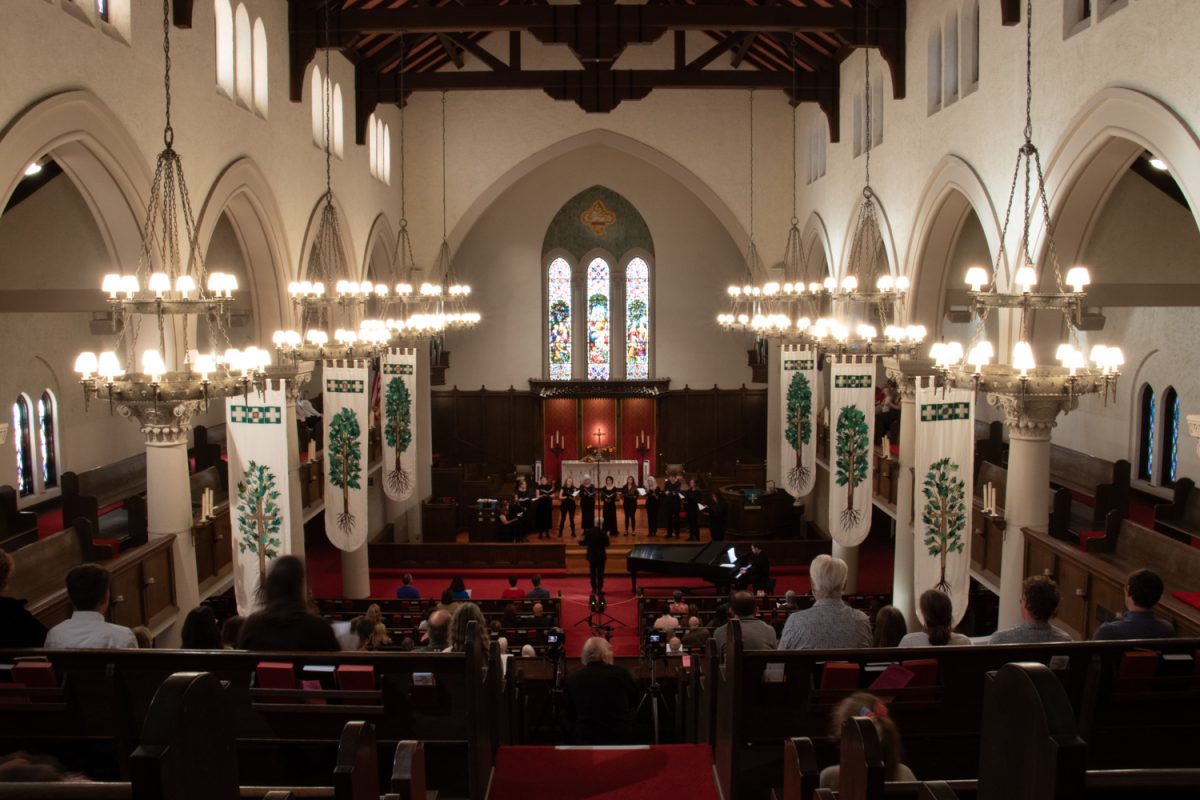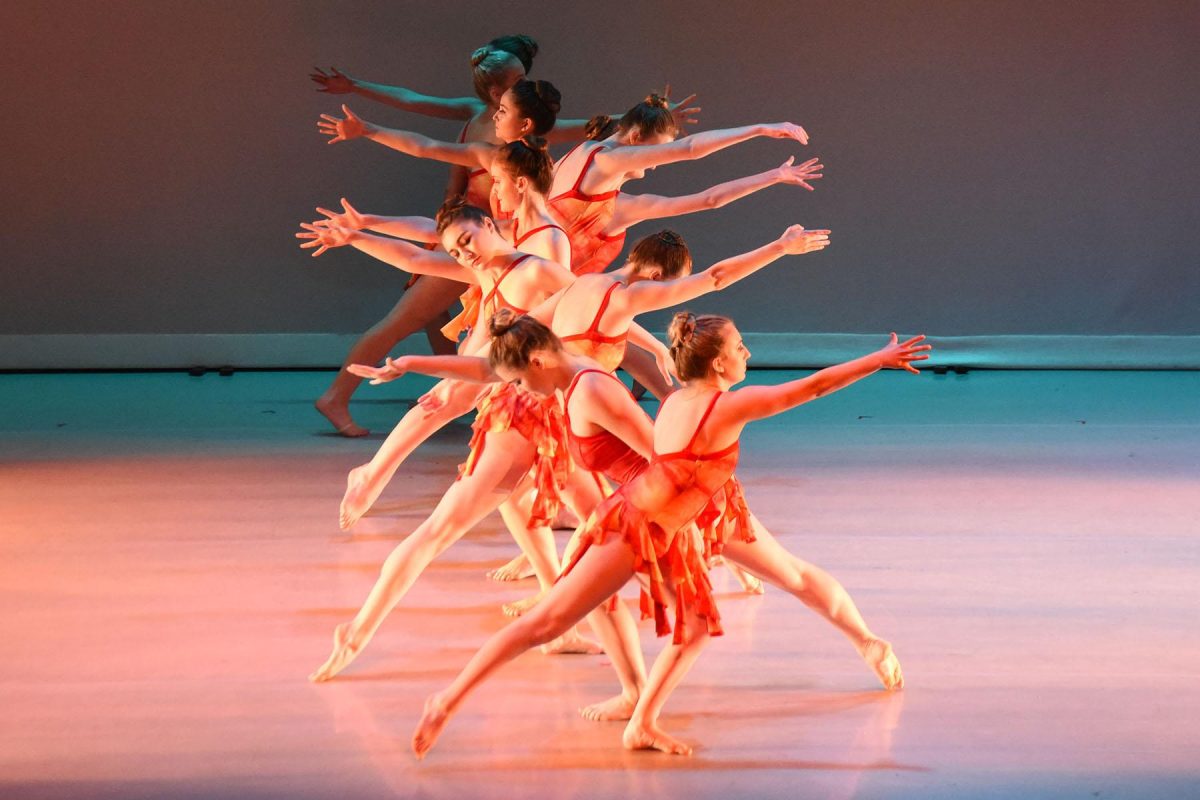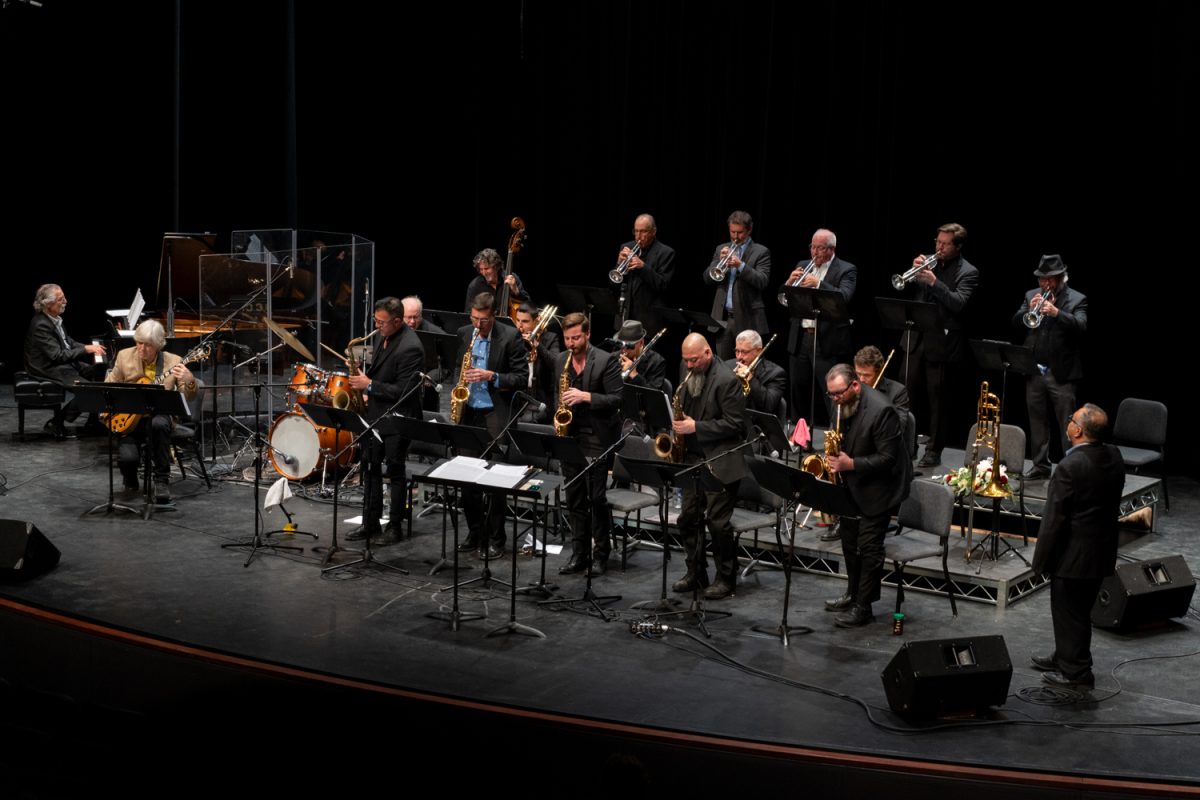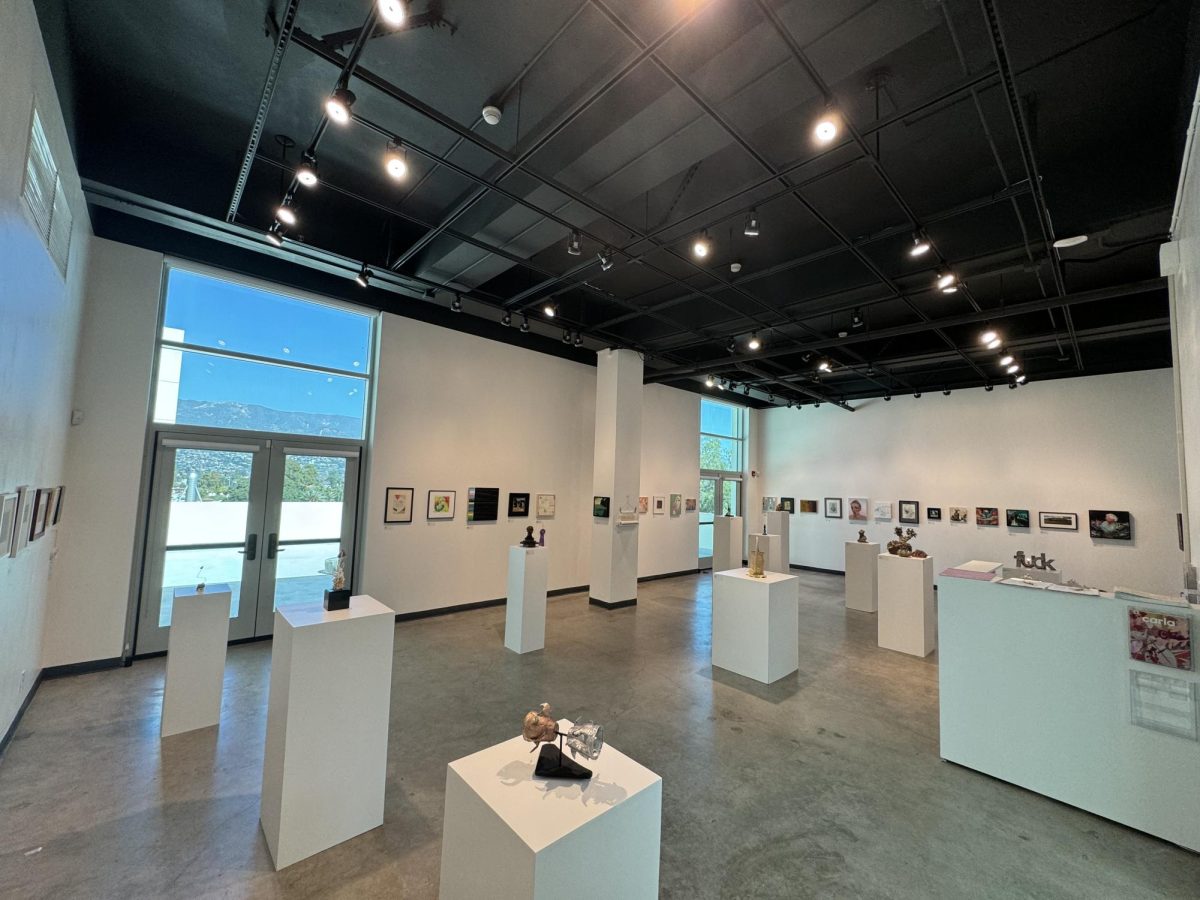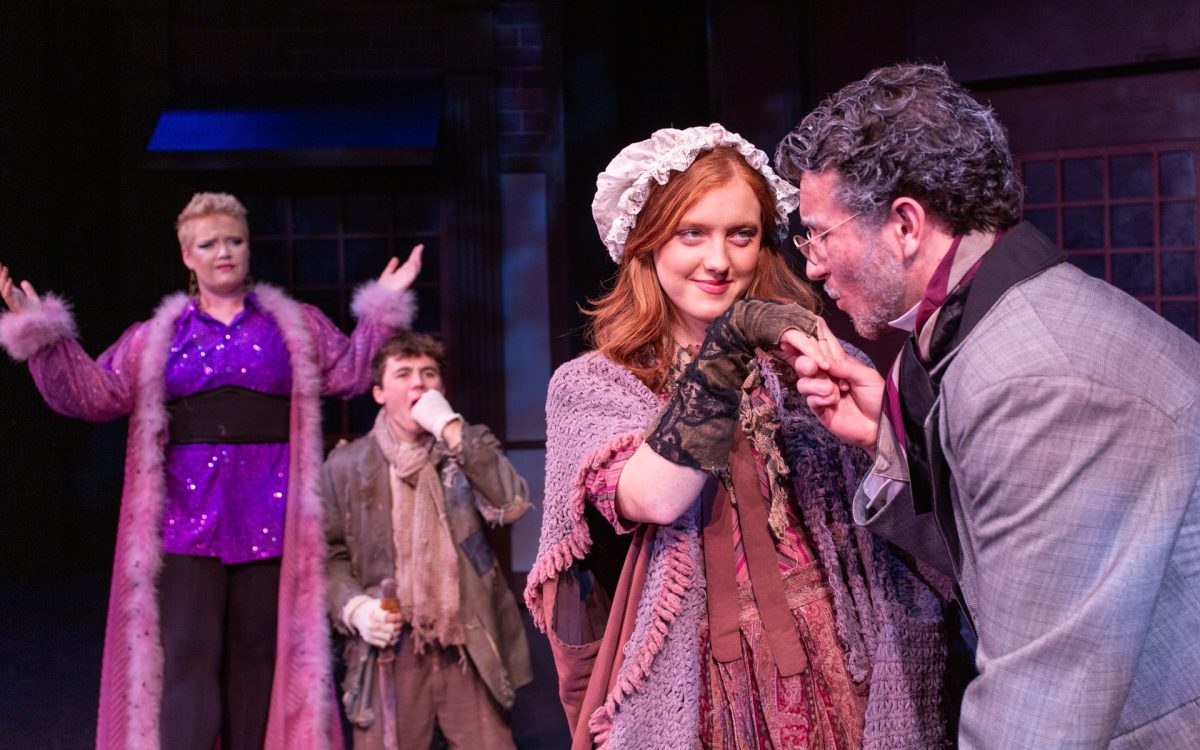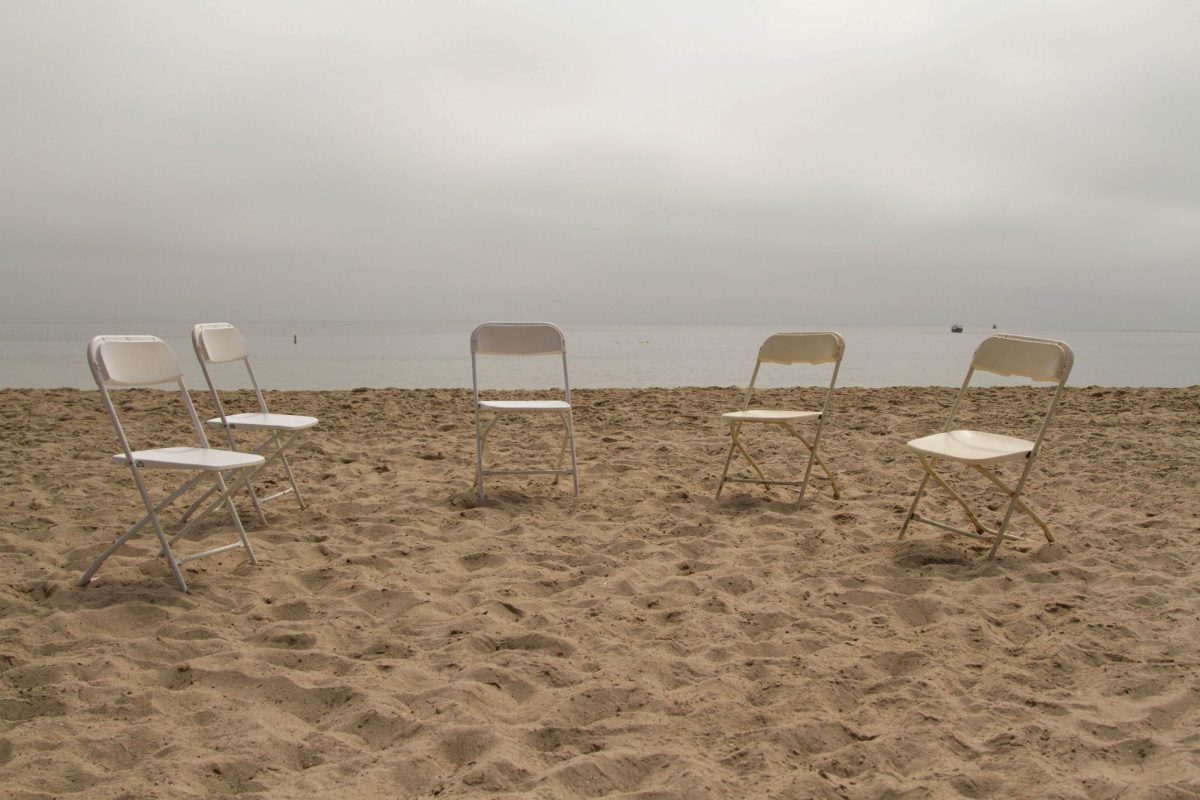The soft sounds of chatter echoed from the sanctuary into the halls of Santa Barbara’s First United Methodist church as City College’s concert choir, bolstered by singers from Allan Hancock College, engaged in last minute preparations before performance.
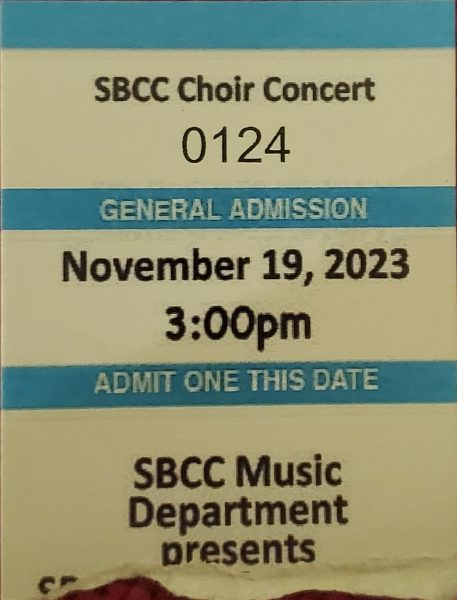
As the choir stood in the apse of the church, sheltered from the unseasonably warm Sunday afternoon, City College’s music department chair, Nathan Kreitzer, stood facing them. After turning to conduct pianist Anne Weger for a few measures of music, he proceeded to use his hands to guide the choir through a last minute rehearsal of Los Angeles-based composer Shawn Kirchner’s “Cornerstone,” joining the entire group in laughter after they fell quiet at the sound of Allan Hancock choral director Nichole Dechaine’s soaring high notes. Kreitzer commented on the abrupt silence, telling Dechaine that all the men in the choir had cut themselves off in shock.
“They thought someone was in trouble,” Dechaine said in response, laughingly.
Only minutes after the concert choir finished their final rehearsals, the church doors opened, and a stream of people entered the sanctuary. They sat on wooden pews, between plaster pillars supporting pointed arches, and filled the church’s balcony seats. A hush fell over the room as the footsteps of the chamber choir marked their entry. The winter concert had begun.
On November 19, City College’s chamber singers and concert choir, joined for the third year by the Allan Hancock College choir, performed a repertoire of American music, ranging from Baroque-era hymns to contemporary compositions.
The single exception to the concert’s American theme was the inclusion of its opening piece, “Sing and We Chant it” by the English Thomas Morley. Morley was a notable 16th century composer of English madrigals, a type of secular a cappella music originating in Italy.
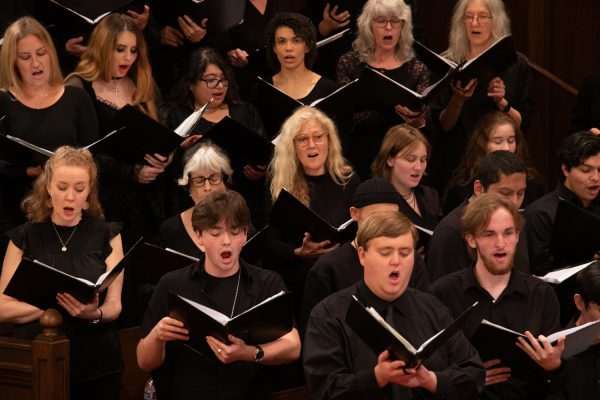
“Sing and We Chant it” was followed by a modern American madrigal, “Three Madrigals” by Santa Barbara local Emma Lou Diemer. Kreitzer referred to the UCSB Professor Emeritus as a local “treasure” before the chamber choir performed her song, vocalists echoing each other cyclically before their voices joined to sing in unison.
The chamber choir and concert choir alike also performed several concert spirituals, or choral arrangements of African American spirituals as pioneered by Fisk University’s George White and the Fisk University Jubilee singers.
The City College and Allan Hancock College concert choir sang several of Aaron Copland’s arrangements of American folk songs, including Shaker Hymn “Simple Gifts” and his rewritten version of minstrel tune “Ching-a-ring Chaw.”
According to the New Mexico Philharmonic, Copland rewrote the text of the song because though he enjoyed its melody, he said, “I did not want to take any chance of it being construed as racist.”
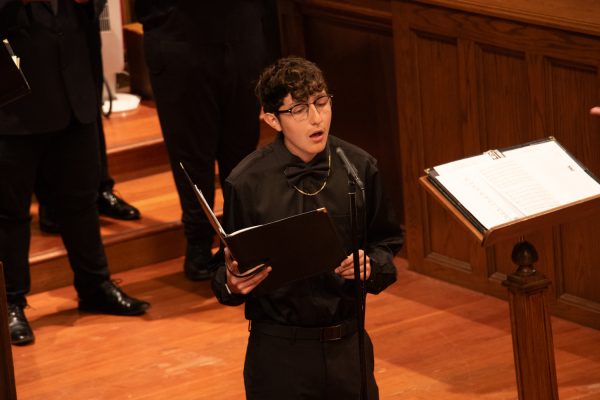
In a rendition of Stephen Paulus’ “The Road Home,” tenor Izeal Negrete sang the song’s harmony as a solo. Kreitzer rearranged the song in order to accommodate Negrete’s higher register, as the solo was originally written for a soprano to sing the melody, which would have been too low for the choir member.
“He was better than everybody else that auditioned,” Kreitzer said. “We’ve done it before with a tenor…because that particular arrangement—the road home—is so low for everyone, it’s OK.”
Kreitzer encouraged audience members to participate by singing along to “America the Beautiful,” joking that they’d all passed their auditions to join the ensemble, and invited them to support City College’s music program by attending further events in their fall concert series, including the upcoming Jazz ensemble concert at 7 p.m. on Monday, Nov. 20 and the SBCC symphony concert at 7 p.m. on Sunday, Dec 3. Both events will be held in City College’s Garvin Theatre, with tickets costing $15 for general admission and $10 for students and seniors.


